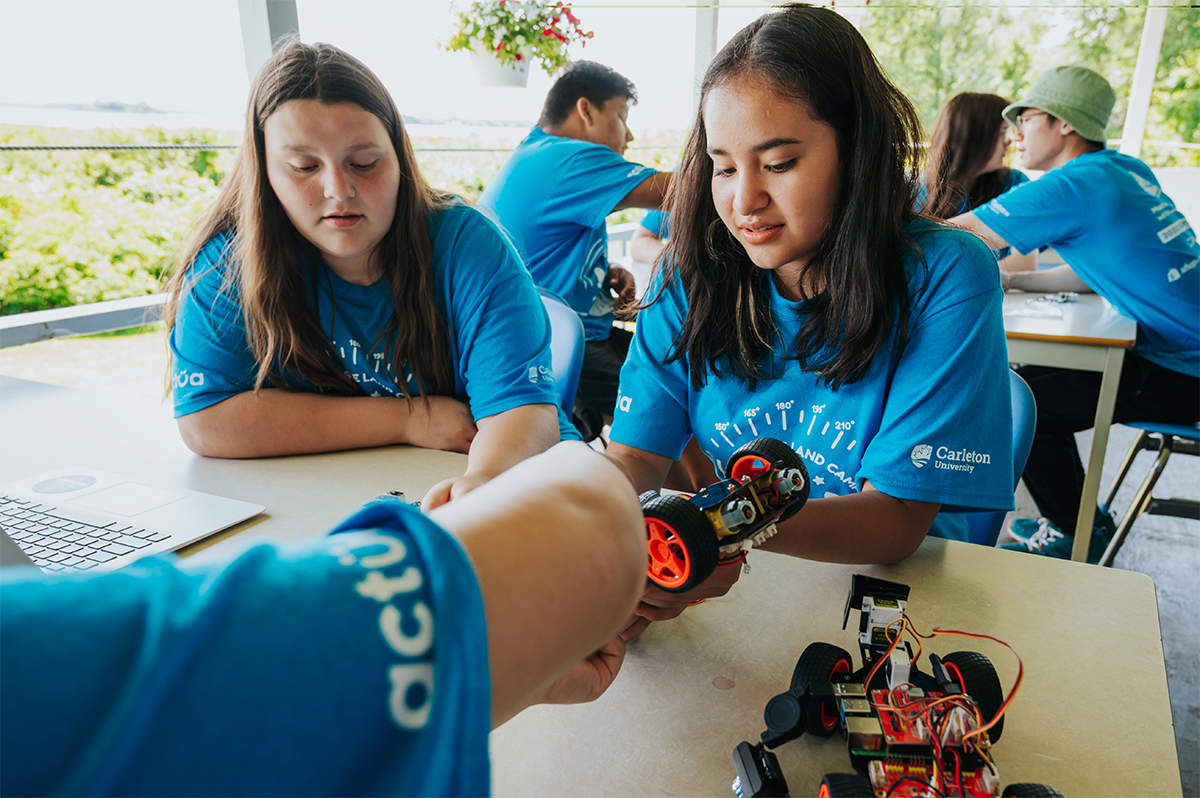By: Kathleen Sandusky
8 Nov, 2022

Photo courtesy of Actua.
Artificial intelligence is quickly becoming a ubiquitous technology, transforming all aspects of human life. Though Canada is one of the most developed and diverse countries in the world, many young people in the country— especially those from underrepresented groups — continue to face barriers to accessing and participating in digital technology and digital-skill building.
This year, to help bridge this digital access gap, CIFAR launched its support for a new education partnership under our NextGen AI Training Programs portfolio. Actua’s National Indigenous Youth in STEM (InSTEM) program is Canada’s first national program designed to remove barriers to Inuit, Metis and First Nations youth engagement in STEM (science, technology, engineering, and math) through land-based education.
Supported by CIFAR through the Pan-Canadian Artificial Intelligence Strategy, the first-ever Mashkikiikaagen Indigenous Youth in STEM (InSTEM) Land Summit was held in July in Akwesasne, Ontario. The land-based training program delivered by Actua and its network member Virtual Ventures at Carleton University brought together Indigenous high school youth and educators in a culturally relevant, for-credit learning experience that aligned Indigenous knowledge and STEM.
“We are grateful to be working with CIFAR on such an important initiative to provide Indigenous students the opportunity to learn the fundamentals of AI through culturally inclusive programs,” says Actua CEO Jennifer Flanagan. “With this funding, Actua will integrate AI content into our long-standing InSTEM program ensuring learners have foundational and relevant knowledge of AI as they move toward post-secondary pathways and careers.”
Youth at the InSTEM land summit learned how emerging AI technologies can be used in Indigenous communities to support community cultural and educational priorities. Through hands-on learning activities such as programming robots and motion detectors for wildlife observation, they were encouraged to think critically about how AI can be aligned with Indigenous scientific knowledge. Participants came up with new ideas to help shape the evolution of AI for the good of society, exploring how AI blended with Indigenous ways of knowing can help address global challenges.
“Ongoing investments through the Pan-Canadian AI Strategy continue to support programs such as this at Actua, helping build skills and career pathways in STEM for Indigenous youth and contributing to a more inclusive AI Canadian ecosystem,” says Elissa Strome, Executive Director of the Pan-Canadian AI Strategy at CIFAR. “There are so many amazingly talented young people from underrepresented communities across Canada, who can greatly contribute to the world through their engagement in STEM fields, including AI. I’m excited to see what’s ahead as we continue to invest in the next generation of STEM leaders.”